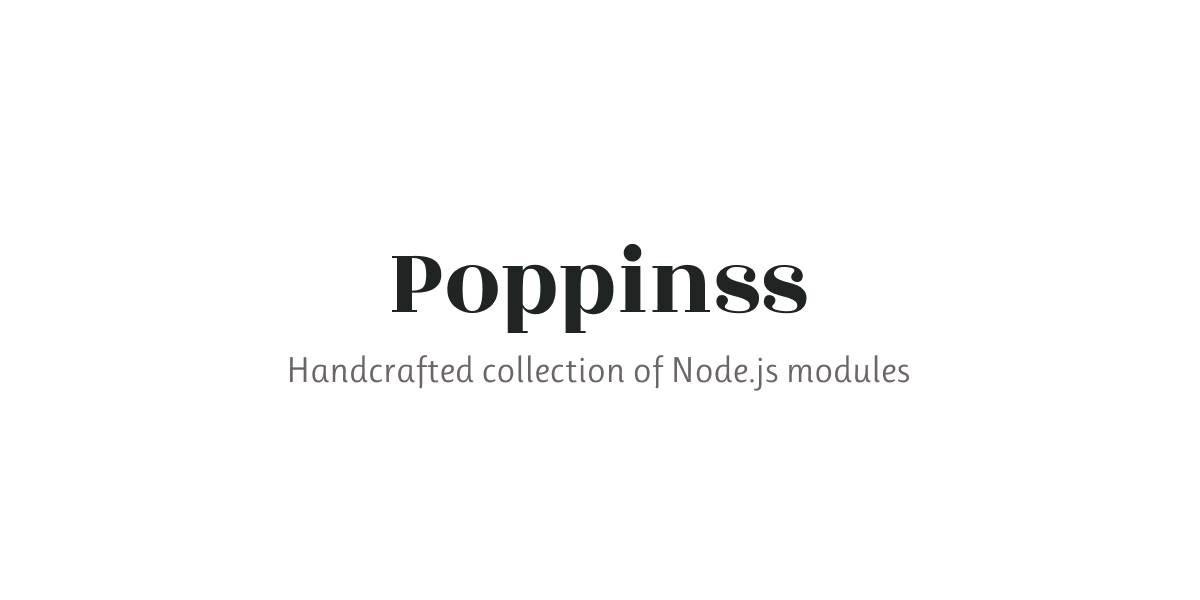Package Exports
- @poppinss/hooks
Readme

Hooks
A no brainer module to execute lifecycle hooks in sequence.
I find myself re-writing the code for hooks in multiple packages, so decided to extract it to it's own module, that can be re-used by other modules of AdonisJS.
Table of contents
- How it works?
- Installation
- Usage
- Removing
beforeandaftercalls with cleanup functions - Passing data to hooks
How it works?
The hooks class exposes the API to register, remove and exec lifecycle hooks for any number of actions or events. The class API is meant to be used internally and not by the user facing code and this gives you the chance to improve the hooks DX.
For example: The Luciod models uses this internally and exposes the API to register lifecycle hooks around model actions like creating, created, deleting, deleted and so on.
Installation
Install the package from npm registry as follows:
npm i @poppinss/hooks@next
# yarn
yarn add @poppinss/hooks@nextUsage
Use it as follows
import { Hooks } from '@poppinss/hooks'
const hooks = new Hooks()
hooks.add('creating', function () {})
hooks.add('created', function () {})
const runner = hooks.runner('creating')
try {
await runner.run() // pass data here
} finally {
await runner.cleaup() // pass data here
}Removing before and after calls with cleanup functions
Usually hooks are modeled around before and after events. Also, the previous versions of this package also allowed registering before and after lifecycle hooks. However, I have recently removed support for that because of the following reasons.
The before and after lifecycle hooks will always be prone to errors. Let's consider the following scanerio.
Scanerio with hooks
We have the following before hooks.
hooks.add('before', 'save', function () {
createTemporaryResource()
})
hooks.add('before', 'save', function () {
createAnotherTemporaryResource()
})
hooks.add('after', 'save', function () {
removeFirstTemporaryResource()
})
hooks.add('after', 'save', function () {
removeSecondTemporaryResource()
})Now let's save the operation around which the lifecycle hooks were registered fails. Should we fire the after hooks?
- If no, then temporary resources will be never be removed
- If yes, then we will end up in the stable state.
However, what happens if the second before hook fails? Now should we call all the after hooks or not?
- If yes, then the
removeSecondTemporaryResourcemay error out since itsbeforeaction was never completed. - If not, then again we will end up in a dirty state from the first
beforehook.
As I mentioned earlier, the before and after hooks have no direct relationship and hence there is no correct way to call only the after hooks for which the before hooks completed successfully.
Therefore, by removing the concept of before and after and using cleanup functions, we will be able to design a more robust hooks system.
Scanerio with cleanup functions
Now, in the following API, the hooks themselves are responsible for returning the cleanup functions.
If the second hook fails, then we will only call the cleanup function for the first hook.
hooks.add('save', function () {
createTemporaryResource()
return removeFirstTemporaryResource
})
hooks.add('save', function () {
createAnotherTemporaryResource()
return removeSecondTemporaryResource
})Passing data to hooks
You can pass data to hooks at the time of running the run and the cleanup functions. For example.
import { Hooks } from '@poppinss/hooks'
const hooks = new Hooks()
hooks.add('creating', function (arg1, arg2, arg3) {})
hooks.add('creating', function (arg1, arg2, arg3) {})
hooks.add('creating', function (arg1, arg2, arg3) {})
const runner = hooks.runner('creating')
await runner.run('arg1', 'arg2', 'arg3')It is usually helpful to inform the cleanup functions if there was an error or not. Maybe some cleanup functions may not to run only in case of errors.
const hooks = new Hooks()
hooks.add('creating', function (model) {
const file = await saveFileToDisk()
model.filePath = file
return (error, model) => {
if (error) {
await removeFileFromDisk(model.filePath)
}
}
})
const runner = hooks.runner('creating')
try {
// Run hooks
await runner.run(model)
// Run the actual action
await model.save()
} catch (error) {
// During error
await runner.cleaup(error, model)
}
/**
* During success
*/
if (runner.isCleanupPending) {
await runner.cleaup(null, model)
}



